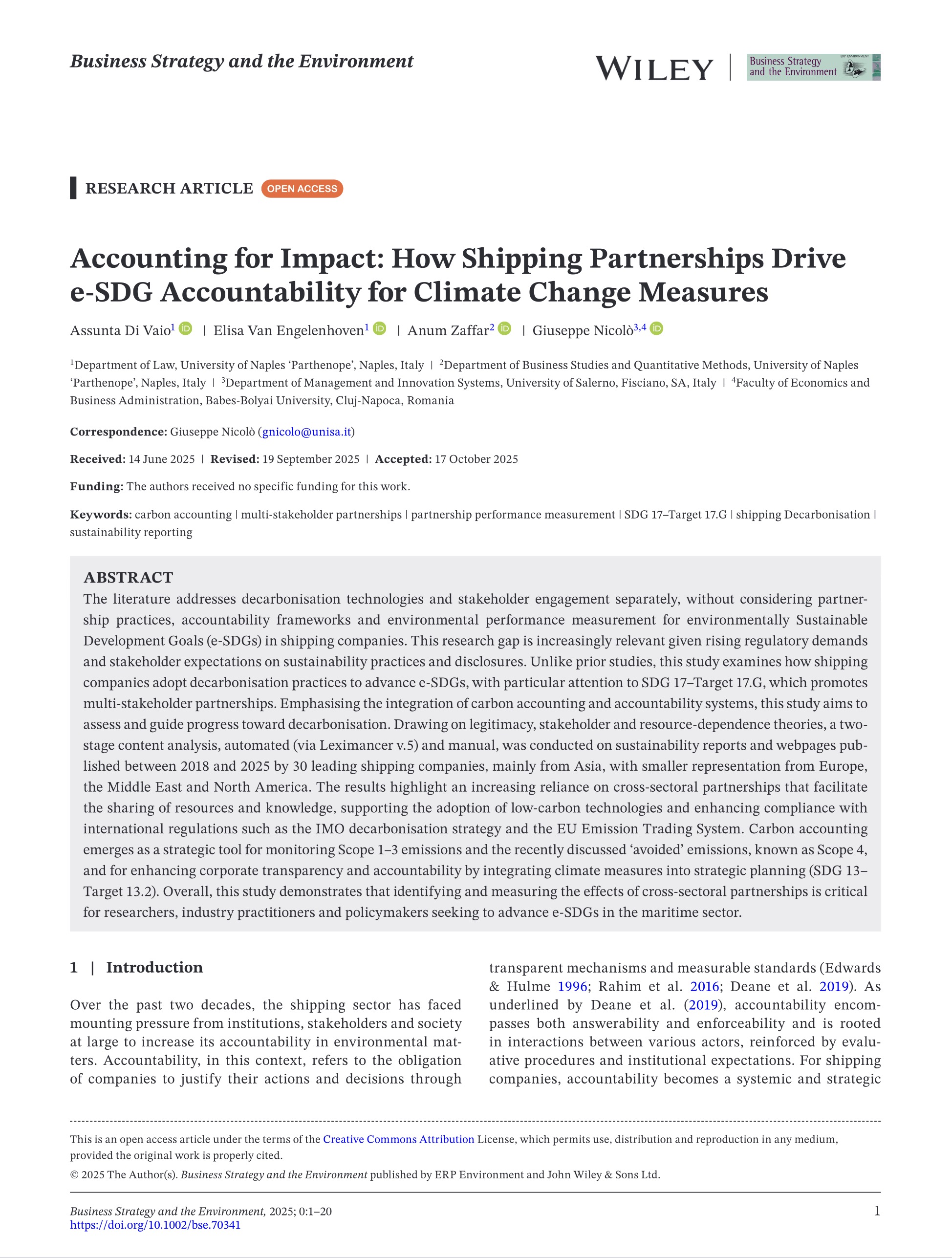|
|
|
Di Vaio, A.; Van Engelenhoven, E.; Zaffar, A. & Nicolò, G. (In press) Business Strategy and the Environment [Core Economics, Q1]
Autor:
Cristina Alexandrina Stefanescu
Publicat:
22 Noiembrie 2025
Di Vaio, A.; Van Engelenhoven, E.; Zaffar, A. & Nicolò, G. (In press) Accounting for Impact: How Shipping Partnerships Drive e-SDG Accountability for Climate Change Measures Business Strategy and the Environment .
DOI: https://doi.org/10.1002/bse.70341
✓ Publisher: Wiley
✓ Categories: Business; Management; Environmental Sciences
✓ Article Influence Score (AIS): 2.345 (2024) / Q1 in all categories.
Abstract: The literature addresses decarbonisation technologies and stakeholder engagement separately, without considering partnership practices, accountability frameworks and environmental performance measurement for environmentally Sustainable Development Goals (e-SDGs) in shipping companies. This research gap is increasingly relevant given rising regulatory demands and stakeholder expectations on sustainability practices and disclosures. Unlike prior studies, this study examines how shipping companies adopt decarbonisation practices to advance e-SDGs, with particular attention to SDG 17–Target 17.G, which promotes multi-stakeholder partnerships. Emphasising the integration of carbon accounting and accountability systems, this study aims to assess and guide progress toward decarbonisation. Drawing on legitimacy, stakeholder and resource-dependence theories, a two-stage content analysis, automated (via Leximancer v.5) and manual, was conducted on sustainability reports and webpages published between 2018 and 2025 by 30 leading shipping companies, mainly from Asia, with smaller representation from Europe, the Middle East and North America. The results highlight an increasing reliance on cross-sectoral partnerships that facilitate the sharing of resources and knowledge, supporting the adoption of low-carbon technologies and enhancing compliance with international regulations such as the IMO decarbonisation strategy and the EU Emission Trading System. Carbon accounting emerges as a strategic tool for monitoring Scope 1–3 emissions and the recently discussed ‘avoided’ emissions, known as Scope 4, and for enhancing corporate transparency and accountability by integrating climate measures into strategic planning (SDG 13–Target 13.2). Overall, this study demonstrates that identifying and measuring the effects of cross-sectoral partnerships is critical for researchers, industry practitioners and policymakers seeking to advance e-SDGs in the maritime sector.

inapoi la stiri  vezi evenimentele
vezi evenimentele  home
home 
|